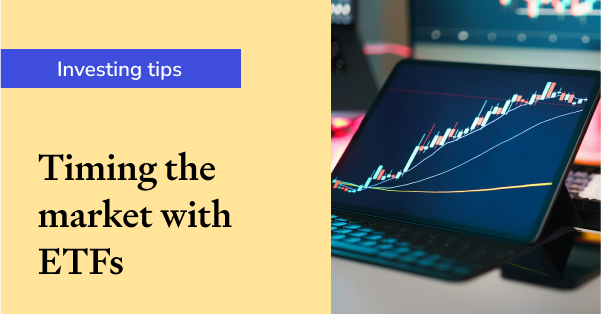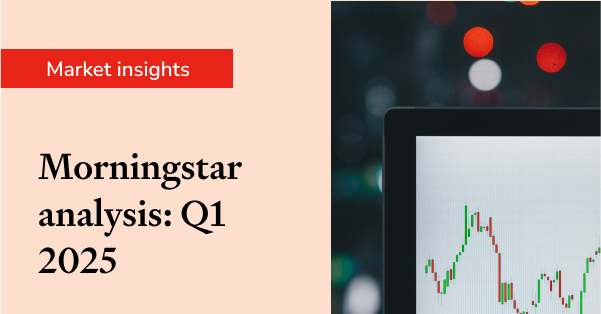ETF and managed fund tax improvements for Australians
The changes introduced as part of Australia’s new Attribution Managed Investment Trust (AMIT) regime mean the annual taxation statements from trusts (such as managed funds and ETFs) can contain as many as 17 distribution and 2 capital gain components. These components must be correctly recorded across all the trusts investors earn income from when they complete their Tax Return for Individuals 2018 form. This can be a complex and time-consuming process.
Fortunately, we’ve been working hard at Sharesight to build solutions to make ETF tax admin easy for Australians, and have just completed another major initiative to improve how you can use Sharesight to complete your tax return if you invest in ETFs or managed funds.
Trust tax components in Australia
Trusts only finalise the tax components in the annual taxation statement issued by the trustee at the end of the financial year. As a result, the break down of the components across the (usually quarterly) distributions paid by the trust are subject to change at year end. Sharesight has been able to source the final year end tax components for ETFs registered with Computershare, but for ETFs using different registries, or managed funds / unit trusts not registered with Computershare, investors will need to manually record the year-end tax components annually in Sharesight, which is where our latest feature comes in.
Sharesight’s trust pro rata distributions components form
Sharesight automatically records the value of distributions paid during the year by ETFs and managed funds from our data partners at the ASX and Morningstar. But because the final tax component break down is only available in the annual taxation statement, we’ve built a solution to easily record these in Sharesight and pro rata the components against the distributions received during the year (or the part of year) the trust was held.
When running Sharesight’s Taxable Income Report the trust pro rata distributions components form can be used to enter these values when a date range is selected for a financial year and ‘Show holding totals’ is selected in the ‘advanced options’.

You just need to click on the ‘Enter Annual Tax Statement Components’ button and enter the tax components from the annual tax statement into the form. This will then pro rata the components across the distributions for the trust. Once the trust tax components are provided, they will pass through to the ‘Tax Return’ section of Sharesight’s Taxable Income Report to make completing your Tax Return for Individuals 2018 form straightforward.
Before using this form, make sure to read our Taxable Income Report Trust pro rata distributions components form works help page which goes into detail on the various components and how the form works.
Important notes:
- If you are completing your tax return using the ATO’s online myTax system, trust component distribution data for each ETF may already be pre filled and just needs to be checked against your annual tax statements or entered directly from these
- The component names may differ between your annual tax statement and the fields used in Sharesight - this image will give you a good guide to how the fields map to Sharesight for Computershare ETFs
- Your cash position for each distribution will remain unchanged (subject to some minor rounding). This is important when calculating performance, DRPs and for reconciliation with Xero.
- In order to enter the correct AMIT components and retain the same Net Cash Amount, you need to have the correct Tax Details entered.
- If you are considering using our Income Tax Return section on the Taxable Income Report, you will need to ensure you have the correct tax detail entered for each ETF in your portfolio.
- The Trust pro rata distributions components form works for ETFs, Managed Funds and Unit Trusts as well.
- If you have synced your portfolio to Xero’s cloud accounting software, you may need to do some additional work to reflect the payout changes in Xero.
- Even for Computershare registered ETFs we recommend reconciling your annual tax statement against the numbers automatically populated in Sharesight to be sure of their accuracy.
Tax time webinar with PwC & Sharesight
Watch this webinar where PwC Partner Glen Frost & Director Tristan Whitefield & Sharesight CEO, Doug Morris answer your Australian tax time questions.
Embedded content: https://www.youtube.com/embed/56bbRYB4VXo
Simply the best portfolio tracker for Australian investors
Join thousands of Australian investors already using Sharesight to manage their investment portfolios. With Sharesight you can:
- Automatically track your dividend and distribution income from stocks, ETFs, LICs and Mutual/Managed Funds – including the value of franking credits
- Use the Dividend Reinvestment Plan (DRPs/DRIPs) feature to track the impact of DRP transactions on your performance (and tax)
- See the true picture of your investment performance, including the impact of brokerage fees, dividends, and capital gains with Sharesight’s annualised performance calculation methodology
- Run powerful tax reports to calculate your dividend income with the Taxable Income Report
- Plus calculate your CGT obligations with Sharesight's Australian Capital Gains Tax Report and Unrealised Capital Gains Tax Report
To get started for FREE, simply sign-up, import your holdings and watch as dividends and prices are automatically updated. If you decide to upgrade, you’ll unlock advanced features and everything you need to run your tax reports and gain unparalleled insights into your portfolio performance throughout the year.
Plus, as an Australian tax resident, you can save even more by claiming your Sharesight subscription fees on your tax return1.

FURTHER READING
- 7 reasons why Sharesight is better than a spreadsheet
- Record-keeping requirements for Australian investors
- 5 ways to get the portfolio insights you need
1 If you derive income from the sharemarket, your Sharesight subscription may be tax deductible. Check with your accountant for details.

You can time the market – and ETFs are the way to do it
Marcus Today founder and director Marcus Padley discusses timing the market, and how investors can do this using exchange-traded funds (ETFs).

Morningstar analyses Australian investors’ top trades: Q1 2025
Morningstar reviews the top 20 trades by Australian Sharesight users in Q1 2025, and reveals where their analysts see potential opportunities.

Sharesight product updates – April 2025
This month's focus was on improving cash account syncing, revamping the future income report and enabling Apple login functionality.